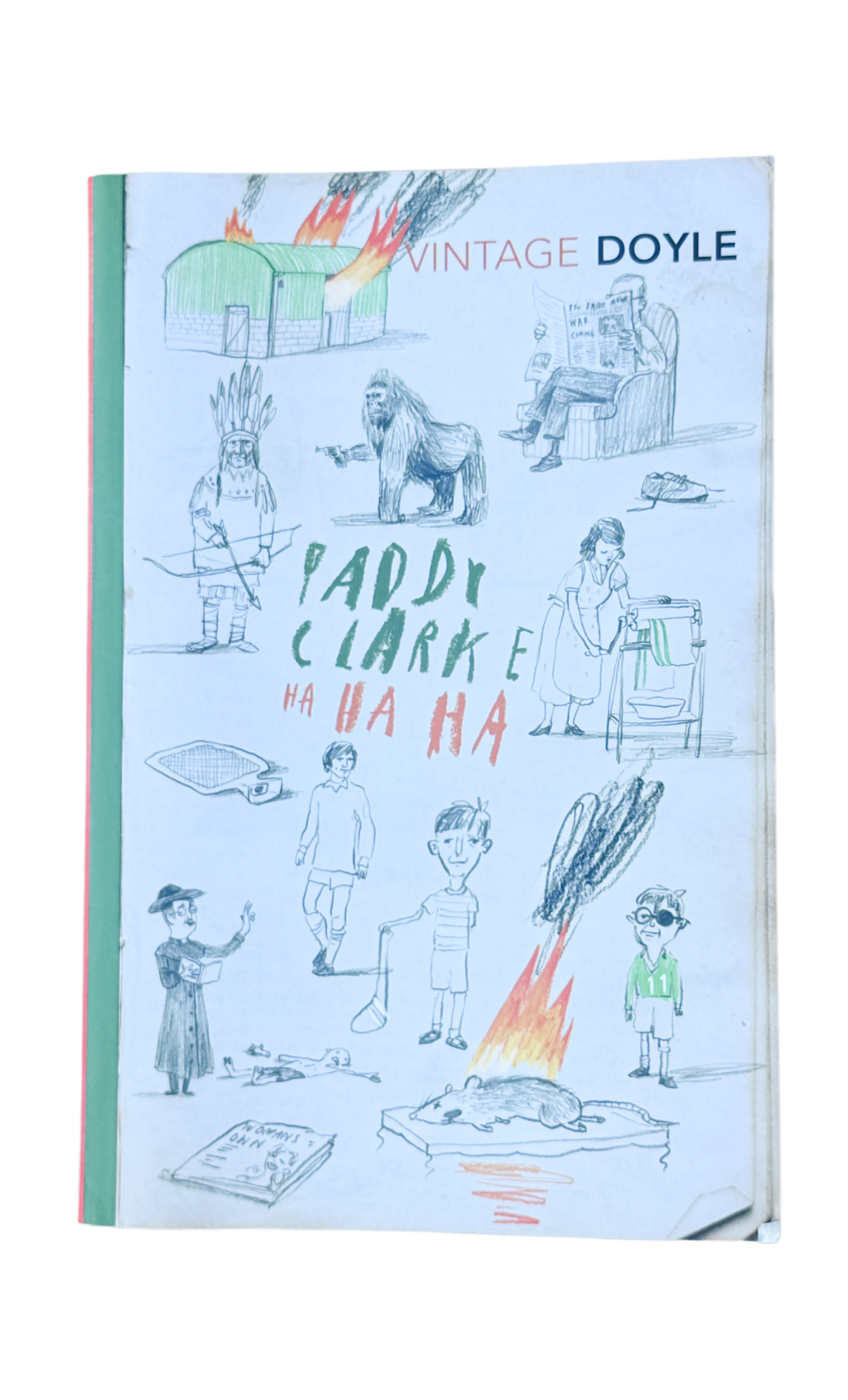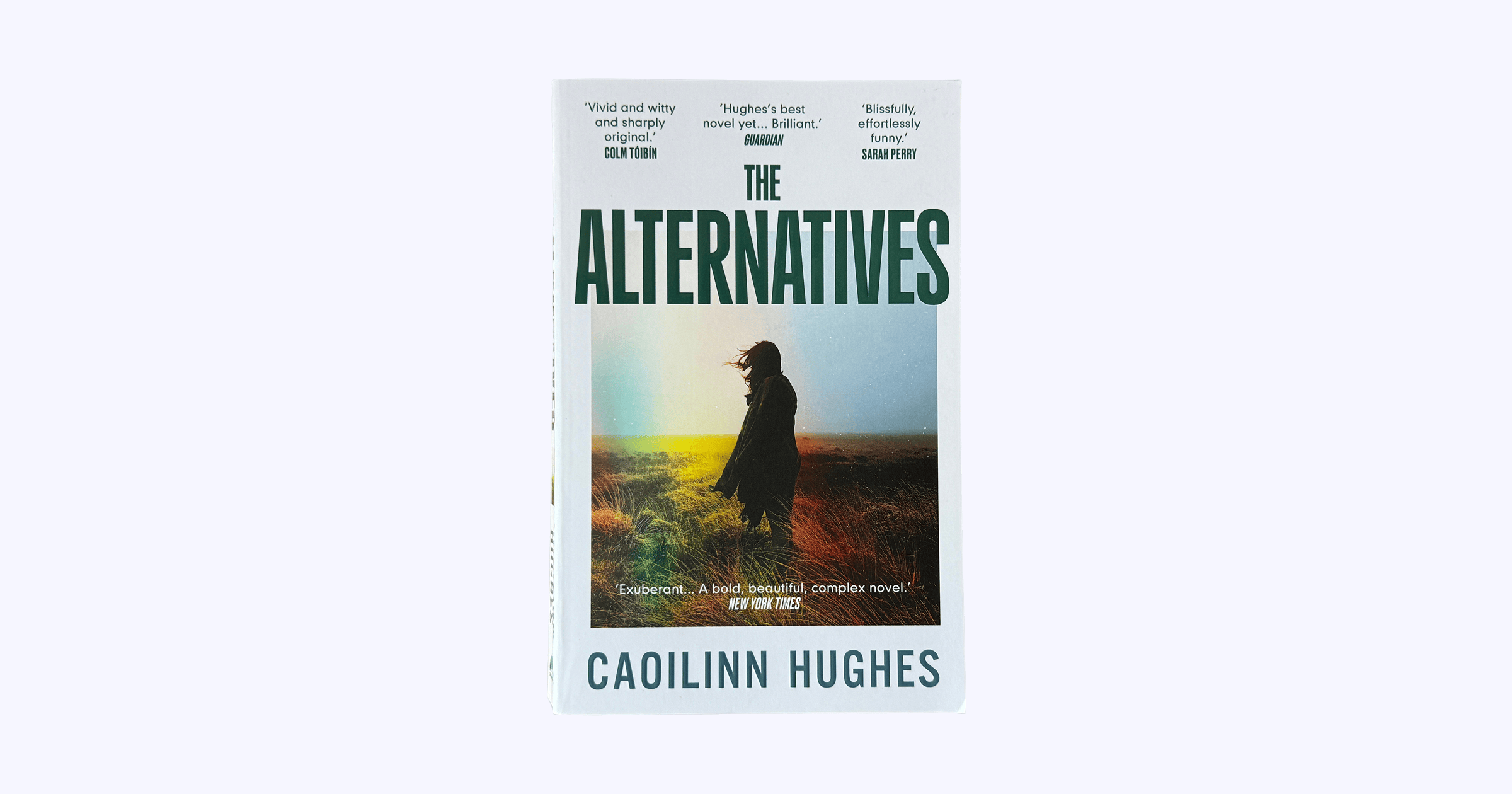Paddy Clarke Ha Ha Ha
by Roddy Doyle

The perfect balance between humour and heartbreak: a vivid portrait of childhood innocence set against a backdrop of a family’s quiet collapse.
When I celebrated my birthday earlier this year, my friends gifted me a great big pile of books and a gift card to spend at a local book store. I stuck that gift card in my pocket, rode over to the book store and, on the way there, decided to use it to purchase books by Irish authors, because I like Ireland even though I've never been—but I'd like to go—and, as it didn't look like I would travel there in the very near future, this was the closest thing I could think of.
I settled on a new Irish book and an old Irish book. The new was written by Caoilinn Hughes, and I've recommended it here before; the old was a classic, a Booker-prize winner I hadn't yet heard of, titled Paddy Clarke Ha Ha Ha.

Paddy is a little boy, nine or ten years old, and lives in Barrytown, a working class neighbourhood in the Dublin of the 60s. Paddy and his friends pretty much own the neighbourhood, with its near constant expansion and aboveground tunnel system of soon-to-be-installed sewer pipes. His world is small. His imagination—his most prized possession—looms large.
We walked; we ran. We ran away. That was the best, running away. We shouted at watchmen, we threw stones at windows, we played knick-knack — and ran away. We owned Barrytown, the whole lot of it. It went on forever. It was a country.
The book is written from Paddy's perspective, and there are no chapters. Reading it feels like tapping into his consciousness, jumping from one subject to another, leaving you to piece together why the kid's thinking or saying what he does. Time feels irrelevant, and every event seems important—a mosaic of childhood, you can feel the cogs in his brain constantly turning, piecing things together, trying to figure out the world. Why Charles Leavy is so effortlessly cool; how to retrieve the jumper they left at the building site without the workers noticing; when a scab is perfect and ready to be picked off his knee; why his parents can't seem to get along anymore.
The book very precisely captures the joys of a childhood spent playing outdoors, and the terrors of wanting to belong; the tightrope you need to walk not to get left out from one day to the next. And, seen from Paddy's point of view, Doyle brilliantly describes the tension between two parents who can't see eye to eye, their relationship unraveling. A child of divorced parents myself, he made me feel Paddy's anxiety in every bone.
Paddy tries to keep his parents from fighting to protect his little brother Sinbad (his real name is Francis), by staying up all night and thinking magic thoughts. He listens for the hissing noise that indicates parents' screamed whispers, scans for changes in the rhythm of their comings and goings (did one of them go to bed earlier? Did they close the bedroom door differently than they normally do?). He's a keen observer, his feelers working overtime.
They were fighting all the time now. They said nothing but it was a fight. The way he folded his paper and snapped it, he was saying something. The way she got up when one of the girls was crying upstairs, sighed and stooped, wanting him to see that she was tired. It was happening. They probably thought they were hiding it.
— I didn't understand. She was lovely. He was nice.
Depicting school smells and fistfights, football games and family time, backyard adventures and dialogues, Doyle renders it all in the most recognisable detail. His dialogues in particular are masterful; I don't think I've ever come across anyone who has portrayed mumbling dads more accurately.
It's funny, touching, beautiful. The heartbreak of two parents on the verge of separating forms the novel's spine, but the miniature world Doyle assembles around it is extraordinary and hilarious.
Paddy Clarke Ha Ha Ha by Roddy Doyle
First published by Martin Secker & Warburg in 1993
Re-published by Vintage in 2019

